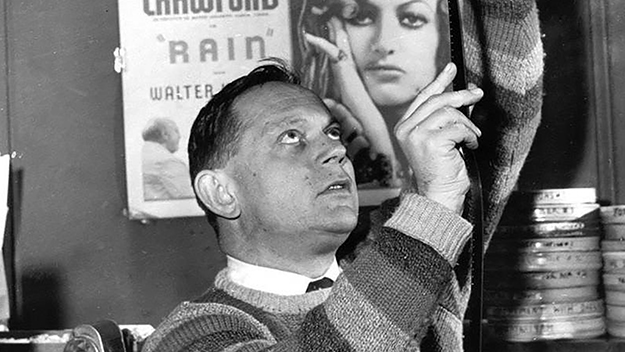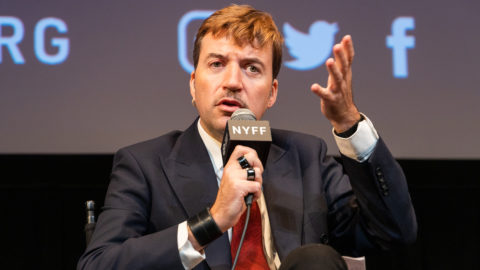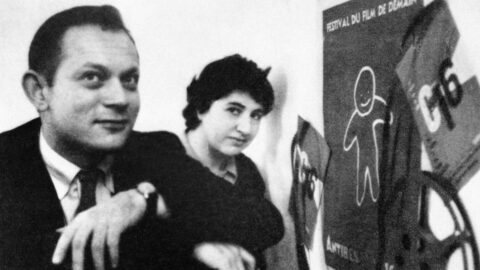Remembering Amos Vogel: There Are No Accidents
This article appeared in the November 11 edition of The Film Comment Letter, our free weekly newsletter featuring original film criticism and writing. Sign up for the Letter here.

Amos Vogel, 1962. © The Estate of Amos Vogel
Even though I worked for Amos, my thoughts about him are personal, not professional. I’ll leave it to others to place him in a historical context.
I came to New York from a movie-mad city—Montreal—where we watched everything and argued constantly. The New Wave directors would visit often and felt appreciated in a Francophone city that didn’t have to be convinced.
Upon arriving in New York in 1966, I interviewed for an assistant job at the 4th New York Film Festival. Amos was amused by my assertions of a cinephilic past (although I had to admit it was limited because in Quebec one wasn’t allowed to attend movies, any movies, until the age of 16). He hired me and I stayed until 2008! My respect for him was already in place. It was my affection for him that grew through the years. His gentle kindness and soft-spoken advocacy for filmbelied somewhat his fierce passion and determination to champion film as a vehicle for social reform and artistic delight. He and his wife Marcia were perfect for each other—inevitable, in fact. They both twinkled in the same way even when Marcia was delivering wry aphorisms. One of my favorites was “there are no accidents”—meaning you are in charge of your own destiny, so get on with it.
Amos gave me tasks that would have normally made me bristle and resist, but I was happy to do anything for him. He had a color-coded file card system which I helped him build. Every film he ever watched was immortalized on a small index card, and guess who typed them up? I dreaded his return from a festival when he would hand me a large sheaf of notes. But I was always happy to please him.
In 1966, the NYFF opened with Miloš Forman’s Loves of a Blonde, and the festival also included three other Czech films by groundbreaking new directors. To acknowledge this burgeoning national cinema, Amos mounted a large survey at MoMA, bringing to New York all the key players in the movement. It was a sensation and exactly the kind of celebration he wanted to mount at Lincoln Center. It whetted Amos’s desire to do year-round film programming at Lincoln Center.
Amos’s warm and humanistic approach to his work and staff as co-director of the New York Film Festival contrasted but didn’t conflict with the high-strung intellectualism of Richard Roud. They served each other well for a few years, with Amos pushing hard for the inclusion of shorts, documentaries, and avant-garde cinema. Then the selection process and disputes about credit led to the establishment of the Film Society of Lincoln Center with a board of directors, which did not suit Amos’s spirit or his way of working. While I was not privy to the discussions that drew his tenure to a close, I believe he had made an ultimatum to the powers on the board insisting on a commitment to a permanent year-round home for film. That dream came true decades later with the opening of the Walter Reade Theater in 1999. Sadly, Amos resigned after six years at Lincoln Center. But he had fought valiantly for what he loved, utterly true to his nature.
Wendy Keys has been with Film of Lincoln Center since 1966 as administrator, programmer and now board member. Since 2008, she has served as Secretary of the Film at Lincoln Center Board of Directors.





